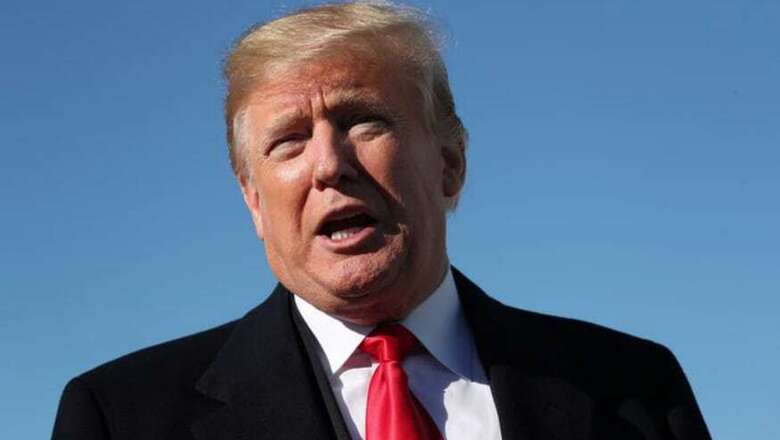
views
Washington: President Donald Trump on Wednesday vowed to right "calamitous" trade policies and sought to expand his power to impose tariffs which he said would empower him to respond faster during trade wars.
Trump during his annual State of the Union address told Congress that Washington's aggressive trade negotiations with China would mean an end to its alleged "theft" of US jobs and wealth.
"We are now making it clear to China that after years of targeting our industries, and stealing our intellectual property, the theft of American jobs and wealth has come to an end," Trump said in his address to the joint session of the US Congress.
"Therefore, we recently imposed tariffs on USD 250 billion of Chinese goods — and now our treasury is receiving billions of dollars a month from a country that never gave us a dime. But I don't blame China for taking advantage of us, I blame our leaders and representatives for allowing this travesty to happen.
"I am also asking you to pass the United States Reciprocal Trade Act, so that if another country places an unfair tariff on an American product, we can charge them the exact same tariff on the same product that they sell to us," Trump said.
The United States Reciprocal Trade Act, if signed into law, could have consequences on bilateral trade with India.
The proposed legislation would expand the White House's latitude to impose tariffs if other countries' tariffs or non-tariff barrier exceed US ones.
The legislation would require at least some negotiations with the other countries and for the White House to notify Congress, but the tariff wouldn't need lawmaker's approval, according to reports.
The president already has some powers to impose tariffs without congressional approval, primarily by citing national security as a reason. He had used those to impose tariffs on steel and aluminum imports.
The Reciprocal Trade Act is likely to face an uphill fight in Congress, where many lawmakers in both parties have opposed Trump's trade policies.
A bipartisan group of lawmakers introduced legislation to limit Trump's ability to use national security as a rationale for tariffs. The business community is rallying behind the bill.




















Comments
0 comment